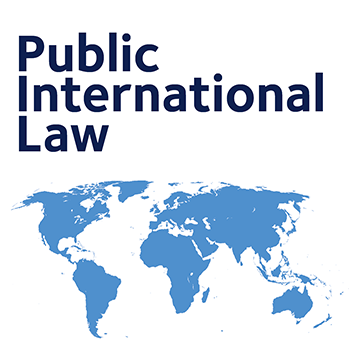Public International Law Taught Courses
There has never been a more exciting time to study Public International Law (PIL). Issues of PIL and international justice are at the forefront of public debates to a greater degree than ever before. International law provides the technical and intellectual underpinnings to large areas of international co-operation, including the prosecution of war crimes (both internationally and nationally), the legality of the use of force against States (e.g. Iraq), environmental protection, the scope of human rights protection (e.g. the ‘war on terrorism’), the economic effects of globalisation promoted through the work of institutions such as the World Trade Organization, the settlement of land and maritime boundary disputes, and the resolution of jurisdictional conflicts arising in the context of anti-trust and other forms of economic regulation by States.
There has never been a more exciting time to study Public International Law (PIL). Issues of PIL and international justice are at the forefront of public debates to a greater degree than ever before. International law provides the technical and intellectual underpinnings to large areas of international co-operation, including the prosecution of war crimes (both internationally and nationally), the legality of the use of force against States (e.g. Iraq), environmental protection, the scope of human rights protection (e.g. the ‘war on terrorism’), the economic effects of globalisation promoted through the work of institutions such as the World Trade Organization, the settlement of land and maritime boundary disputes, and the resolution of jurisdictional conflicts arising in the context of anti-trust and other forms of economic regulation by States.
At undergraduate level, Public International Law may be taken as an option in any of the BA programmes or in the Diploma in Legal Studies.
At graduate level, there are a number of Public International Law options available in the BCL and MJur programmes:
International Dispute Settlement
International Law and Armed Conflict
Courses run by other Departments:
MSt in International Human Rights Law
In conjunction with the Law Faculty, the Department of Continuing Education offers a part-time MSt in International Human Rights Law. The degree programme is designed in particular for lawyers and other human rights advocates who wish to pursue advanced studies in international human rights law but may need to do so alongside work responsibilities. A central objective of the course is to ensure that our students not only know but can also use human rights law. The curriculum places roughly equal emphasis on the substance of human rights law, its implementation and research.
Foreign Service Programme
The Oxford University Foreign Service Programme (FSP) offers a Certificate, Postgraduate Diploma and MSt in Diplomatic Studies.
Further details about these programmes.
MSc Refugee and Forced Migration Studies
The MSc in Refugee and Forced Migration Studies is an interdisciplinary degree taught by leading experts in the field of forced migration from international law, politics and international relations, anthropology, and other disciplines. The course enables participants to explore forced migration through a thesis, a group research essay, and a range of required courses including "Introduction to Forced Migration", "International Refugee and Human Rights Law", "Asylum and the Modern State", and "Research Methods".
Further details about this programme.

